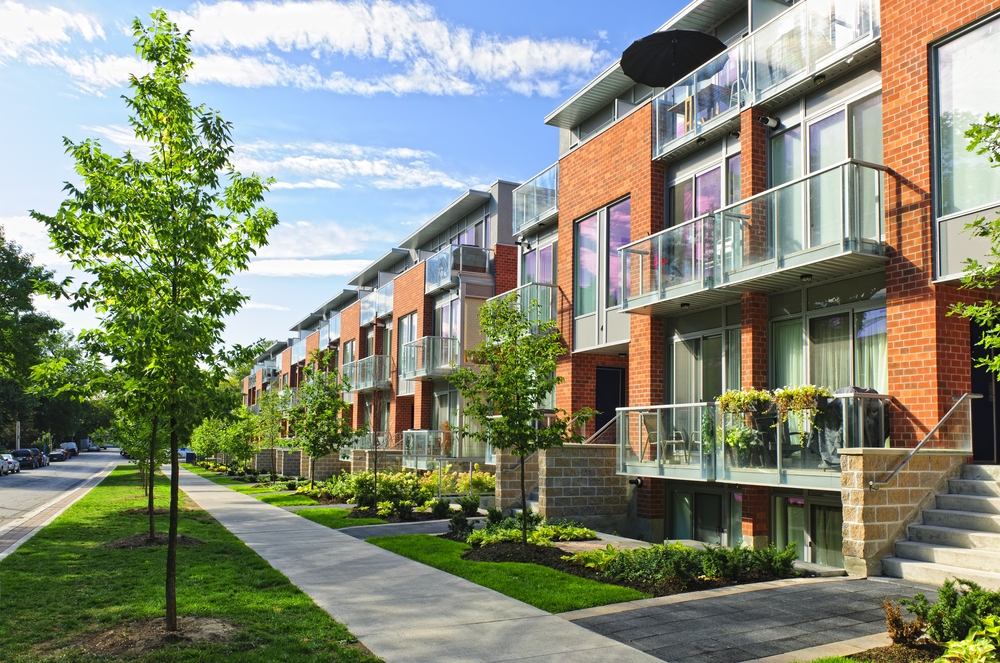
Finding yourself in the financial position where you can afford to own property in your own name is an exciting experience. As you start to peruse the real estate market, however, you will quickly notice that you have a variety of options to choose from. Townhomes, condominiums, and houses are three of the most popular choices, with the latter two being the most commonly debated between.
Therefore, it’s worth looking at the primary differences between these two forms of residences, along with the various benefits and drawbacks which may influence a person’s decision to purchase one over the other.
What Is A Condominium?
In some cases, people become confused between condominiums, often called condos, and houses. While most people are aware of what a house looks like, condos are often mistaken for apartments or townhomes. The difference between a condo and a house is that an individual condo is a part of a large complex of individual units, similar to an apartment complex.
However, unlike apartments, each condo is owned individually with the person who owns it having control over the interior and exterior, but not the land that the condo sits on. The community property is owned via shared ownership with the other condo residents, which includes floors, sidewalks, exterior areas, stairwells, and more.
Condo owners are required to make a monthly payment, similar to a mortgage, along with a condominium fee that is given to the condominium association. This extra fee is used to cover insurance for the entire building, certain shared utilities, future maintenance and more. To determine if a condo is right for you, there are a number of pros and cons to consider:
Pros Of A Condo
- A number of condominiums employ security services which make them somewhat safer than a home
- Condominium complexes share community amenities such as a gym, pool, recreation room, and more
- Some interior maintenance will be covered by payments made to the condominium association
- Condominiums are typically far cheaper than homes
Cons Of A Condo
- There is inherently less privacy when owning a condominium due to sharing a wall or walls with neighbors
- Due to belonging to a condominium association, there may be addition restrictions imposed on residents
- Condominium owners are required to pay addition fees
Renting Vs. Buying: Which Is The Best Choice?
All the above talk about purchasing a condo overlooks perhaps one of the most important real estate financial questions to consider: is it better to rent or buy? It is certainly possible to rent a condo but there are certain restrictions in some areas, so be sure to research any. Generally speaking, buying is better for those who plan on staying in the area for a long amount of time and are in the financial standpoint to make a down payment on their property.
The average sale price for a condo in the United States reached over $250,000 in recent years, with the minimum down payment often being considered to be 10%. This means that a person needs to be able to come up with $25,000 for the down payment, which may not be something the average person is able to do. In this situation, renting may be an alternative to consider. However, when you rent your funds simply go towards a landlord rather than building equity, so a large number of people choose to buy instead.
Long Term Benefits Of Owning A Condominium
Beyond all of the above, there are a number of long term benefits that come from luxury living in Aruba condos in Daytona Beach which may make it worth living in over a home. One of the biggest benefits in the long run to owning a condo is the fact that the owner builds equity in their home. This simply equates to the amount of the condo loan that has been paid off up to a certain point. Therefore, if a person purchases a $300,000 condo and has paid off $150,000, their equity is also $150,000.
On top of building equity, another long term benefit of owning a condominium is that it prepares you to eventually make the transition to a house. By owning a condo, you can become accustomed to managing matters around a home without needing to worry about lawn maintenance, managing community areas, or more. A condo owner only needs to focus on maintaining their living space, which is a great learning point for those making the switch to purchasing a home.
How Do I Know If A House Or Condo Is Right For Me?
Naturally, the main difference between a condo and a house is that a homeowner does not share walls with anybody and they get access to a private yard, typically both a front and back yard. On top of this, a house comes with a large amount of square footage and can be multi-story, which the majority of condos are not.
On the other hand, a condo offers a number of additional amenities that you may need to pay for out of pocket when you purchase a home. The smaller space means that condos are not ideal for larger families, though, and are best for younger couples or those with small families. Additionally, considering the average price for a condo has begun approaching the average price for a home, some potential buyers should consider whether saving more money for a couple months to purchase a home is the better choice for them.
The Bottom Line
When it comes to a decision between purchasing a condo or a house, the correct choice is entirely subjective. With that in mind, though, there are a number of benefits to purchasing a condo first in order to get familiar with owning property before making the larger dive into acquiring a home. Regardless of the type of property you choose to purchase, ensure you are financially capable of making the necessary payments so that you don’t damage your ability to borrow funds in the future.



